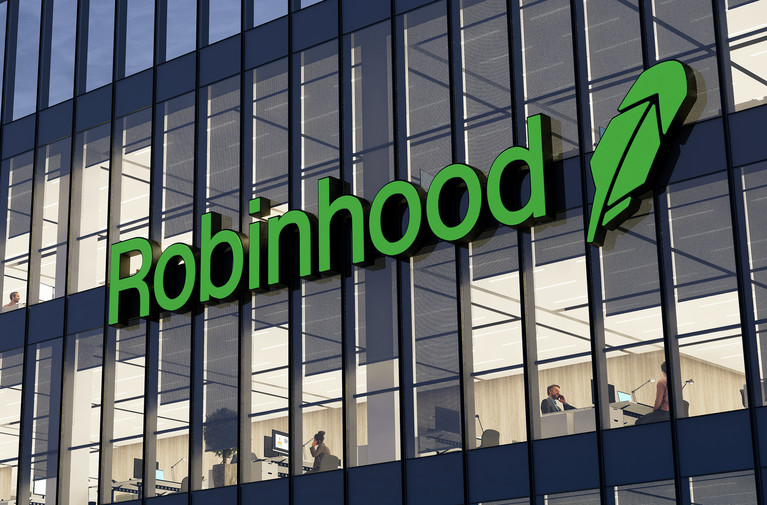By Mike Harlan
Boston, MA – September 17, 2025
Robinhood is in a big legal fight. The company counters a lawsuit from Massachusetts. The state calls Robinhood’s sports prediction markets illegal betting. Robinhood says no. They claim it is federal business. Not state control. This battle is about how to regulate event contracts.
The trouble started last week. Massachusetts Attorney General Andrea Joy Campbell filed suit. She sued Kalshi first. Kalshi is Robinhood’s partner. They offer trades on sports outcomes. Like who wins a football game. The state says this is sports betting. It needs a license. Massachusetts has strict rules for gambling. Only approved operators can do it.
Robinhood jumped in fast. On September 15, they filed their own lawsuit. It is in U.S. District Court in Boston. Robinhood Derivatives LLC leads the charge. This is their trading arm. They ask the court to block the state. They want to keep offering the contracts. Without state interference.
What are these contracts? They are event contracts. Users bet on yes or no outcomes. For example, “Will the Patriots win this Sunday?” You buy a share at a price. Like $0.60 for yes. If yes happens, it pays $1. If no, it is worth zero. Robinhood says this is like stock trading. It is a derivative. Regulated by the federal government. The Commodity Futures Trading Commission (CFTC) oversees it. States have no say.
Massachusetts disagrees. The Attorney General says it looks like gambling. It can cause addiction. It leads to money loss. The state has sports betting since 2022. But only through licensed apps. Like DraftKings or FanDuel. Kalshi and Robinhood skip those rules. They operate nationwide. Even in states without betting laws. This hurts the state’s control. It also skips taxes and protections.
Robinhood’s lawsuit names key people. It targets AG Campbell. It also names the Massachusetts Gaming Commission. The filing says the state oversteps. Federal law gives CFTC exclusive power. The McCarran-Ferguson Act backs this. It says futures are not insurance or gambling. States can’t regulate them. Robinhood notes they geofence some users. But they fear penalties. Like fines or bans. They say this threatens their business.
A Robinhood spokesperson talked to reporters. “Our event contracts are safe and regulated. They help users hedge risks. They are not bets against the house. States can’t block federal products.” The company launched this in March. With Kalshi. It is in the Robinhood app. Users trade 21 hours a day. Sports make up a big part. Last quarter, prediction markets hit $1 billion in volume. Football is hot now. College and pro games draw crowds.
This is not the first fight. Robinhood sued Nevada and New Jersey in August. Those states sent cease-and-desist letters. They called it illegal betting too. Courts there gave Kalshi some wins. Preliminary relief lets them keep going. Robinhood hopes for the same in Massachusetts. Kalshi fights suits in Maryland and others. Tribes sue too. Like in California and Wisconsin. The Ho-Chunk Nation says it steals from their casinos. They claim it breaks the Indian Gaming Regulatory Act.
Experts watch close. John Smith is a gaming law professor at Harvard. He says, “This tests federal power. If Robinhood wins, states lose control. Prediction markets could boom. But if they lose, it stays as betting.” The CFTC approved these contracts in 2024. But they canceled a review meeting. Pressure from leagues like NFL and NCAA grows. They fear match-fixing. Or integrity issues.
In Massachusetts, sports betting brings in $200 million a year in taxes. The state worries about lost revenue. AG Campbell said in court papers, “These platforms target young users. Robinhood’s app appeals to millennials. It mixes investing with gambling. We must protect people.” Robinhood counters that users are 18 and up. They have tools for risk management.
The case could take months. A hearing is set for October. Both sides prepare experts. Robinhood brings finance pros. The state has addiction specialists. Public opinion splits. Some like the choice. Others fear more gambling problems.
This fight affects the whole industry. If Robinhood wins, apps like it could expand. Everywhere in the U.S. No state licenses needed. Traditional sportsbooks fight back. They lobby Congress. For clearer rules.
Robinhood’s CEO Vlad Tenev spoke out. In a blog post, he said, “Innovation needs space. Prediction markets inform markets. They are the future of trading.” But critics say it is a loophole. Dressing bets as investments.
For now, users in Massachusetts can still trade. But with warnings. Robinhood blocks some if needed. The app has millions of users. Many try sports contracts for fun.
This lawsuit shows big changes. Tech meets gambling. Federal vs. state power. The winner shapes how we bet on games. Or trade on events.
